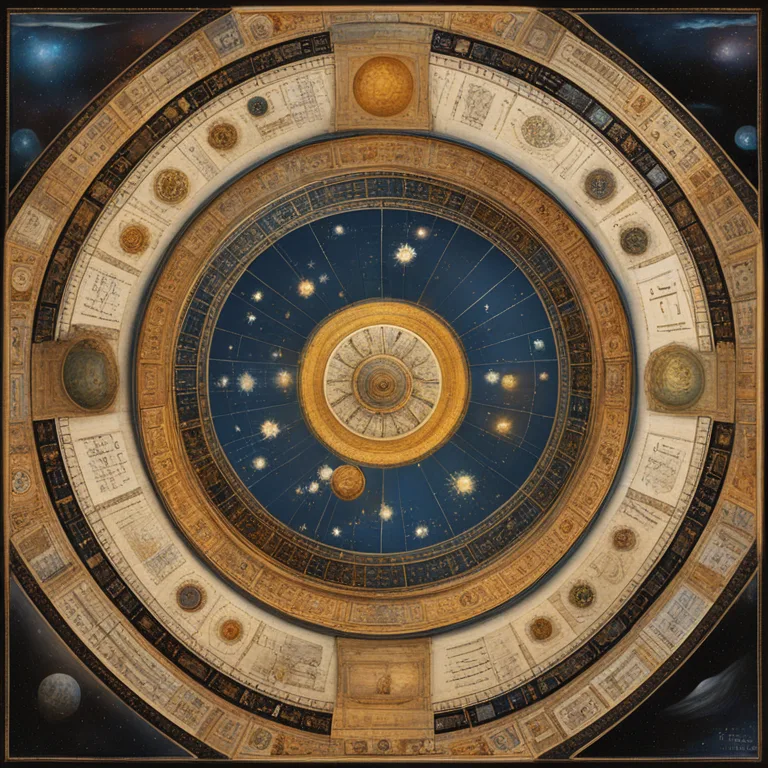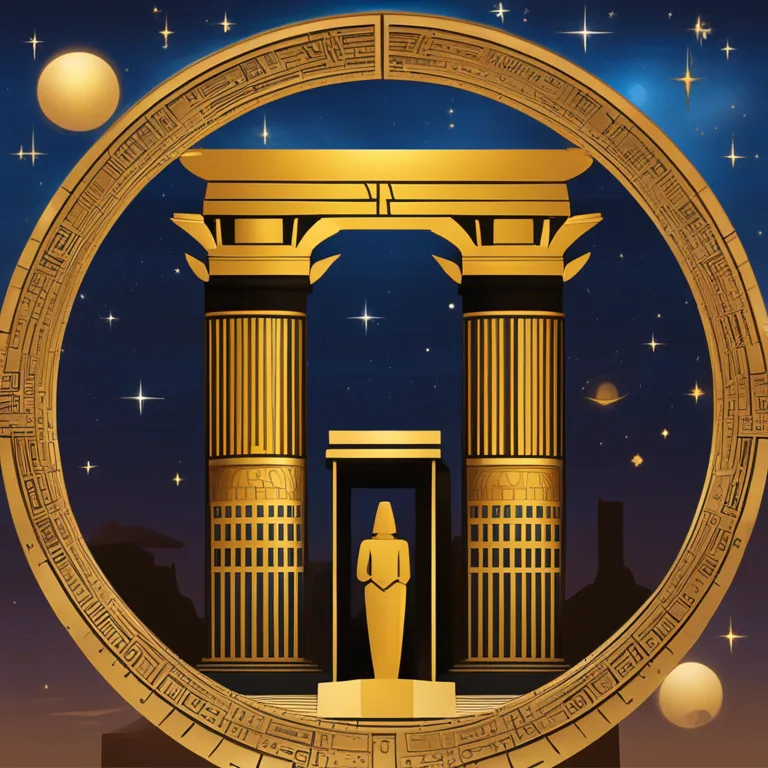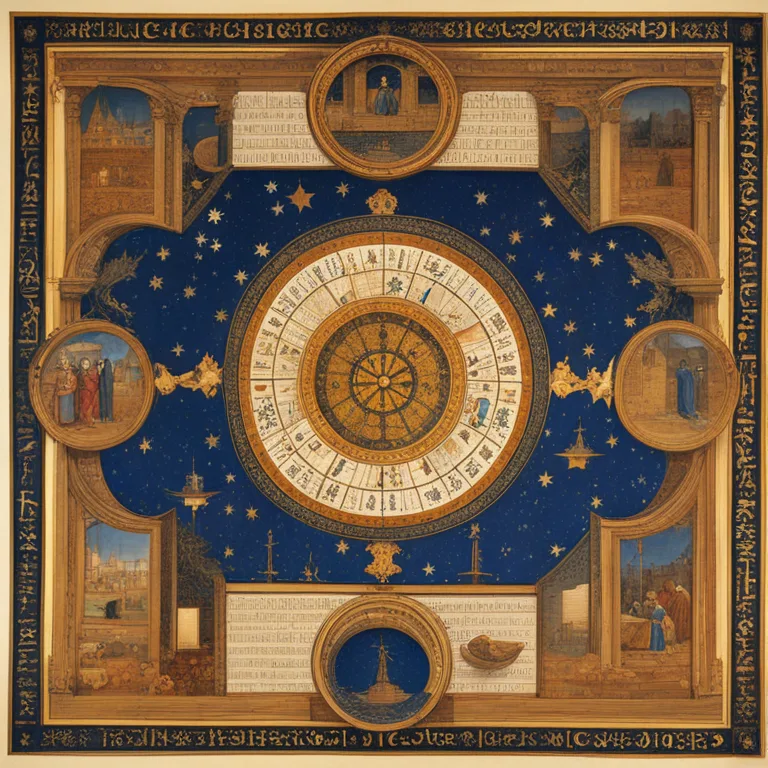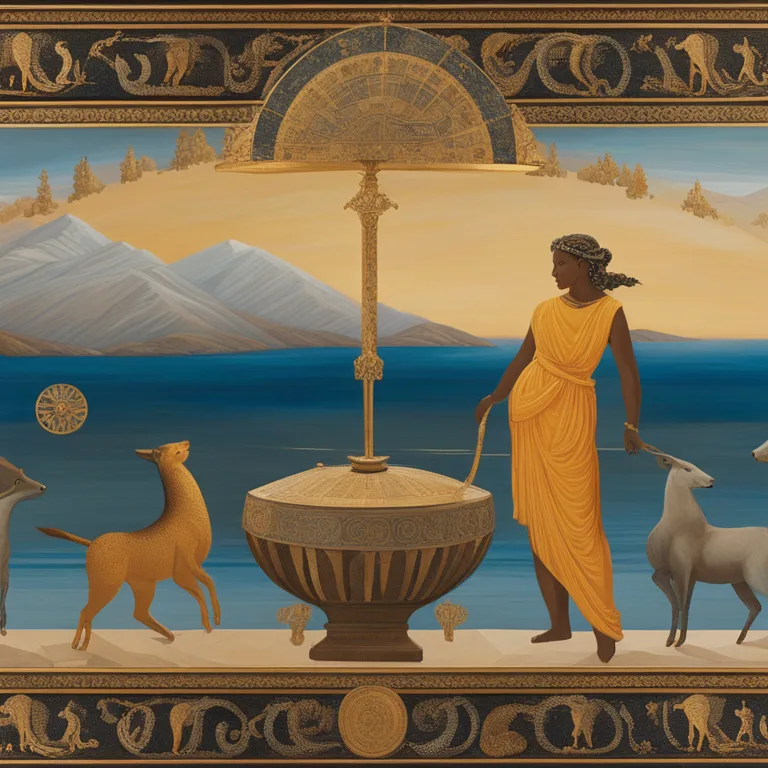
The Journey Through Astrology's History
A concise exploration of astrology's evolution from ancient traditions to present-day practices.
article by Priya Deshmukh
Ancient Beginnings
The history of astrology is as vast and complex as the cosmos it studies. Tracing back to ancient civilizations, astrology's roots stretch beyond millennia. The Babylonians are often credited with developing one of the earliest forms of astrology in the second millennium BCE. Their astrological charts paved the way for future developments, allowing for predictions and planetary interpretations that were vital to agriculture and political affairs. These chart readings sowed the seeds for horoscopic astrology, which would eventually include the zodiac signs we're familiar with today.

Stars of The Pharaohs
In ancient Egypt, the stars played a critical role in both mythology and governance. Egyptian astrology was closely linked to their religion and was used in temple rituals. The movement of celestial bodies was thought to dictate the will of the gods. Around the same time, in China, astrology was being incorporated into decisions made within the imperial court. The meticulous record-keeping practices of these civilizations provide astrologers today with a wealth of information about the positions of stars and planets in ancient times, still referenced in current astrological forecasts.

Greek Influence and The Zodiac
The Greeks further refined astrology during the Hellenistic period after Alexander the Great's conquests amalgamated Eastern and Western cultures. The zodiac, a celestial coordinate system divided into twelve signs, became a significant aspect of astrology thanks to the Greeks' contribution. For instance, the 2024 horoscope utilizes this zodiac to offer insight, with transiting Pluto in Aquarius urging groundbreaking transformations in society, resonating with its ancient interpretations of upheaval and renewal.

Rise and Fall in The Middle Ages
Despite the Roman Empire's initial skepticism, astrology flourished and spread across Europe, later reaching its height during the Islamic Golden Age. Muslim scholars not only preserved Greek and Roman astrological texts but also made significant advancements in astronomical observation. However, astrology's credibility waned as the Renaissance ushered in a new era of scientific inquiry, and the 17th-century scientific revolution further marginalized astrological practice. Nonetheless, it survived, often practiced quietly by those who believed in its insights.

Astrology’s Modern Resurgence
In the 20th century, astrology witnessed a Renaissance of its own. With the emergence of psychological astrology and the New Age movement, the practice once again rose in popularity. Today's astrologers, often interfacing with technology and the internet, cast horoscopes personalized for the modern life. The upcoming Saturn-Jupiter conjunction in 2024, for instance, is anticipated by many to signal a time for personal accountability and growth in the collective consciousness, echoing history's faith in planetary influence over human affairs.
Connecting with the Cosmos in the Future
As we look towards the future, astrology's narrative is one of adaptation and endurance. In an ever-shifting world, the collective yearning for understanding and meaning drives the continual relevance of astrology. Digital platforms have made horoscopes and astrological content readily accessible, ensuring that as we navigate through 2024 and beyond, astrology will remain a companion to those seeking guidance from the stars—just as our ancestors did under ancient skies.
Published: 12/29/2023
Modified: 12/29/2023
More predictions
Come back here soon to learn more about yourself and your future


The Rhythms of Your Birth Chart
Delve into the significance of your birth chart and what the celestial patterns at your birth reveal about your potential, personality, and life path.


Your Birth Chart: Cosmic Blueprint Explored
Delve into the insights of your astrological birth chart and discover the cosmic influences that shape your personality, path, and potential.


The Power of Biorhythms: A Guide
Delve into the significance of your birth chart to comprehend your astrological imprint and personal destiny as written in the stars.